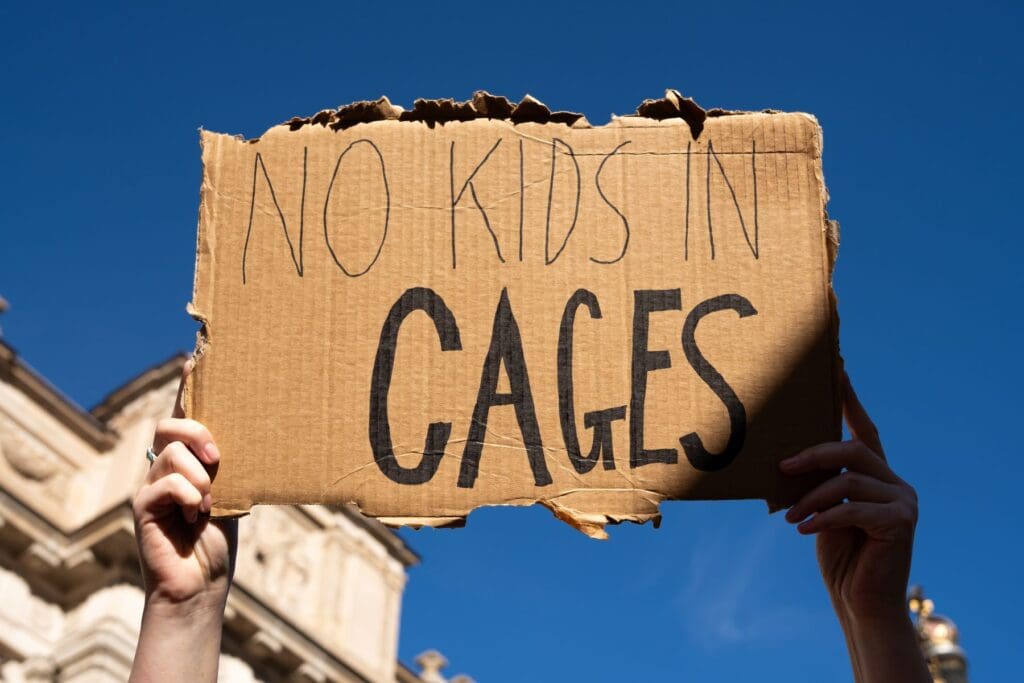Indefinite immigration detention unlawful: High Court rules
The High Court has today ruled that it is unlawful and unconstitutional for the Australian Government to detain people indefinitely in immigration detention.
Nearly 20 years ago, the High Court upheld the constitutional validity of indefinite immigration detention in the case of Al-Kateb v Godwin. Today, a majority of judges of the Court overruled that decision.
In this landmark legal challenge, brought by a person referred to by the pseudonym NZYQ, it was argued that Al-Kateb was wrongly decided, and that it is unlawful and unconstitutional for the Australian Government to continue to detain a person where there is no real prospect that they could be removed from Australia.
Subsequent to the 2004 decision, attempts to overturn it failed. As a result, the Australian Government has routinely detained people for prolonged periods of time – some for over a decade.
Today, the average period of time for which the Australian Government holds people in immigration detention is 708 days. There are 124 people in detention today whom the Government has detained for over five years. Many of those people are stateless or owed protection by Australia, meaning that they cannot be returned to their countries of origin as a matter of international law.
The Human Rights Law Centre and UNSW’s Kaldor Centre for International Refugee Law appeared as amici curiae – friends of the court – to successfully support the arguments that indefinite detention is unlawful.
Quotes attributable to Sanmati Verma, Acting Legal Director at the Human Rights Law Centre:
“Indefinite detention ends today. The High Court has overturned a two-decades-old authority that allowed the Government to lock people up in immigration detention potentially for the rest of their lives. Today, the High Court held that the Government can no longer detain people if there is no real prospect that it will become practicable to remove them from Australia in the reasonably foreseeable future. Detention in these circumstances is unconstitutional.
“This has life-changing consequences for people who have been detained for years without knowing when, or even if, they will ever be released.
“The government must respect the constitutional limits of detention and act immediately to free people who have been indefinitely detained.”
Quotes attributable to Professor Jane McAdam AO, Director of UNSW’s Kaldor Centre for International Refugee Law:
“Indefinite detention has always been arbitrary and unlawful under international law. We welcome the High Court’s decision today, which will mean that Australia can no longer detain people for years on end. For decades, Australia’s approach to detention has been completely out of step with that of other democratic countries. As a result of this significant decision, this will now have to change.
“This is an important and long-awaited victory for human rights.”
Media contact:
Thomas Feng
Media and Communications Manager
Human Rights Law Centre
0431 285 275
thomas.feng@hrlc.org.au
Lauren Martin
Communications Officer
Kaldor Centre for International Refugee Law, UNSW Sydney
0407 393 070
lauren.martin@unsw.edu.au
Media Enquiries
Chandi Bates
Media and Communications Manager

University of Melbourne urged to drop repressive anti-protest and surveillance policies
The University of Melbourne is being urged to abandon policy changes that restrict staff and students’ right to protest and permit the widespread surveillance of people using their wifi network.
Read more
Expanded protections for marginalised groups welcomed in Allan Government’s anti-vilification laws
The Human Rights Law Centre welcomes the additional protections for marginalised groups in anti-vilification laws passed today by the Allan Government. These laws expand protections from vilification to include people from LGBTIQA+ and disability communities, and provide communities with important civil law avenues to address vilification.
Read more
Aboriginal human rights experts take Australia’s racist youth justice policies to the UN
Aboriginal leaders are calling on the United Nations to take urgent action to address Australia’s discriminatory and punitive youth justice policies
Read more


